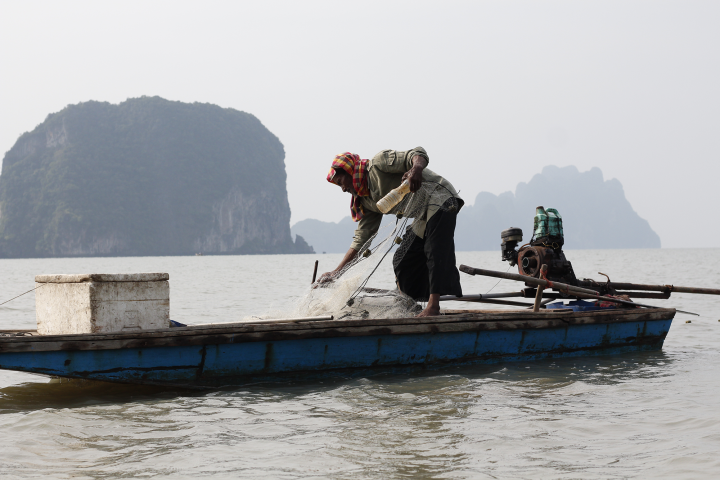Ecoalf: the pioneer of ethical fashion stays one step ahead of the competition

We already met in 2013, when Ecoalf was just getting started. Has your positioning remained the same?
Yes, our mission has remained the same since the company was created: developing a new generation of fashion items made from recycled materials based on the same quality and design standards as the best products on the market. Our aim is to prove that it is possible to produce high-quality items while making responsible use of natural resources. We have currently developed over 300 types of fabrics by recycling plastic bottles, nylon, tires, cotton, wool, coffee and more. Our business focuses on innovation and technology as they are crucial for developing the new, high-quality materials used to make our products.
The efforts we have made in recent years clearly show that recycled materials were not in any way incompatible with the quality and design criteria we sought to achieve. Since then, we have noted a very stimulating change in attitudes as the general public now knows that waste can be a resource as valuable as virgin materials.
How has the business changed in the past 6 years?
Our most revolutionary project is definitely Upcycling the Oceans which was launched in 2015 in the port of Villajoyosa (Mediterranean coast of Spain). Initially, working with just three professional fishermen, we thought that it could be useful to convert the waste recovered in the trawl nets into high-quality thread. We now work with over 3,000 fishermen in 60 Spanish ports (Mediterranean and Atlantic) who extract 400 tonnes of waste per year from the ocean floor.

|
Shortly after the Spanish initiative was launched, the government of Thailand asked us to reproduce our initiative in their country with support from the Thai tourism authorities and PTTGT, a Thai petrochemical group. We now work with fishermen, divers and volunteers on the beaches. We are particularly happy to contribute to the development of a circular economy in which we recover waste that after recycling, is converted into high-quality thread used to make our collections of swimwear and sneakers.

|
We are also looking to raise awareness of environmental issues as much as possible. Over the past years, we have organised over 300 conferences/discussions as we believe that education is key in reaching solutions. We are present on many digital platforms and often give presentations in universities and schools, although not to talk about fashion. We see that the future generations understand the seriousness of the situation and the need to act now. |
We believe that we should be concerned not only about the planet we are leaving our children, but also about the children we will be leaving on the planet.
Last year, we achieved BCorp certification, an award that recognises the world’s best companies and the companies that are best for the world. The criteria include social and environmental commitments. We are Spain’s first fashion brand to achieve the certification!
Your products are mainly made using marine plastic waste. Is that still the case or have you sought out other materials to recycle?
Of course, a large part of our collection is made using materials from the Upcycling the Oceans project, in particular the PET used to make the Ocean Waste sneakers. However, we also recycle nylon, tires, cotton, wool, and more.
|
We are currently focusing heavily on cotton, as manufacturing it requires very large quantities of water. An Ecoalf sweatshirt made from recycled cotton saves more than 4 litres of water! By creating a collection using that cotton, we believe that we have saved 39 million litres of water and we hope to do even better in the coming years. There is no planet B for manufacturing sweaters and T-shirts. In addition, we donate 10% of the proceeds of each product sold to the Ecoalf Foundation in order to help it continue its mission of cleaning up the oceans and expand into the Mediterranean. We are also investing time to make materials with a low ecological impact such as hemp, Bemberg-Cupro and Tencel, a fibre produced from wood pulp, more fashionable and sought-after. We mainly use them in our summer collections for their technical properties adapted to dealing with heat and their softness to the touch. |

|
You are known for your recycling process and your innovative approach. Can you tell us more about them?
|

|

|
What will be your main areas of development in the coming years?We will continue to invest in innovation in order to stay ahead of the development of our products while reducing their environmental impact. We are looking forward to launching a collection intended for yoga enthusiasts in October. The products will be 100% sustainable; we used various recycled materials (PET, Nylon) together with innovative materials offering maximum comfort and effectiveness. Innovation and rigorous design combined to deliver optimal performance. It’s good for humans and for the planet!
|





